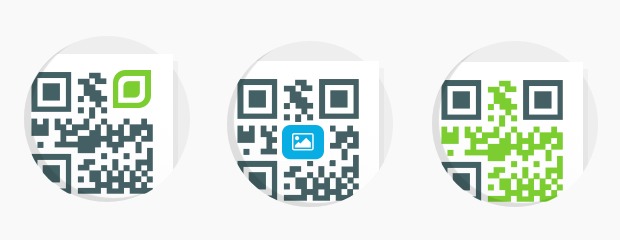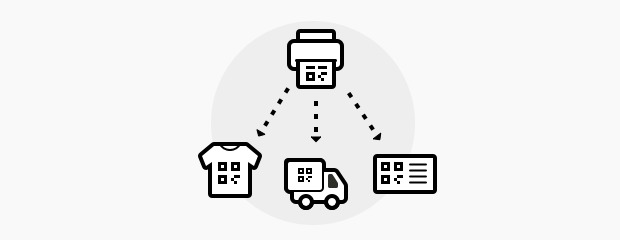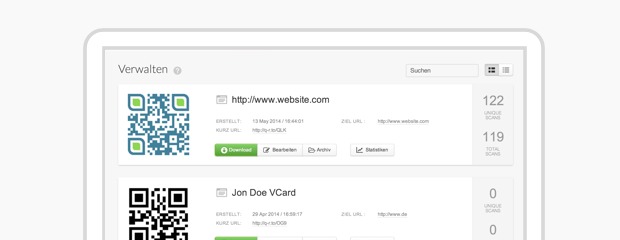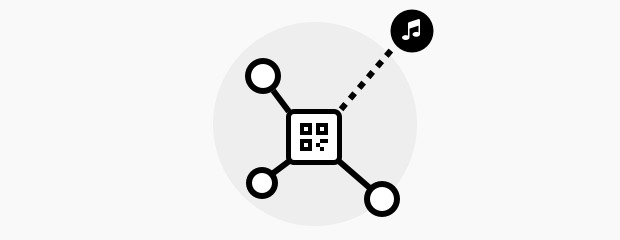
Forever Free - After signup
Design your QR Codes
Create a QR code with your own logo, colours and shapes. It not only looks better, but also leaves a lasting impression with your customers.
Signup now - it's free
Forever Free - After signup
Files in print quality
JPG, PNG, SVG, EPS. – Download your QR codes in high resolution pixel- or vector-based formats that are suitable for all print options.
Signup now - it's freeForever Free - After signup
Success analysis through statistics
How often and where are your QR codes being scanned? View this information and more via the scan statistics.
Signup now - it's free
Forever Free - After signup
Manage your QR Codes
Labelling, sorting, searching, archiving and deleting — use the extensive administration features to maintain an overview of large amounts of QR codes.
Signup now - it's free
Forever Free - After signup
Dynamic QR Codes
Would you like to change the QR Code type or the information it contains? Dynamic QR codes can be edited at any time — even after printing.
Signup now - it's free
Forever Free - After signup
Your QR Code download is starting...
Get real print quality files(300DPI) instead of 72DPI you are currently downloading. It's free and take only 2 minutes to signup.
Signup now - it's free

































































